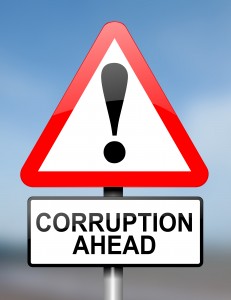By Ryan C. Wood
A concern young people should have is establishing credit. How do you obtain credit? How do you build up your credit? Credit is a vicious cycle. In order to have good credit you need to have start getting a credit history in the first place. But a lot of lenders and creditors will not lend to you if you do not have any credit. In fact, no credit history is worse than having bad credit. How do you get around that?
Young people and other people trying to get their credit off the ground can use one of the most helpful ways of kick starting their credit score: the co-signer. If you do not have any credit and you want to buy a car you will either have to pay a high interest rate or the car lender may even deny you credit. But if you have a co-signer that has decent to great credit your interest rate may be significantly reduced depending on your co-signer’s credit score and history. The co-signer more or less is vouching for you. The co-signer is essentially saying that if you cannot pay for the loan the creditor may go after them to get the loan repaid. You need to be able to find someone that believes in you and trusts that you will be able to pay the debt back or their credit could be negatively impacted. So long as you continue to make those car payments on time your credit will slowly build. You will not have great credit overnight. Credit takes a long time to build and takes a lot of patience and good financial decisions to reach its height. Co-signers beware, you are taking a risk and need to understand that you could be on the hook for the co-signed loan.
What happens if you took a wrong turn and made some bad financial decisions? Say for example you go crazy with your credit cards and you do not have the money to pay it back? Or you were unable to get a co-signer on your car and had to pay over 20% interest for a car that is not worth the amount you paid? The good news is that it is not the end of the world. People make mistakes all the time. You can always start over. One of the biggest tools that can help you get that fresh start is bankruptcy. You should not be thinking of bankruptcy in the same vein of thinking about getting started on improving your credit. Bankruptcy should only be used if you made some mistakes that you cannot get out from under.
If you are considering bankruptcy due to your financial circumstances there are some advantages. If you were unable to get a co-signer for that car and ended up paying a high interest rate bankruptcy can help you. If your car is not worth how much you owe on the car (for example: you owe $15,000 for a car that has a blue book value of $5,000) you can redeem the car for the fair market value in a Chapter 7 bankruptcy. What does redeem mean? Redeem means you pay the lump sum amount of what the car is worth. So instead of paying back $15,000 for the car you only have to pay back $5,000. The caveat is that you have to pay the $5,000 in one lump sum payment. If you are unable to do that, there are companies out there that can help you redeem the car by providing you with a redemption loan. That is similar to a refinancing deal after your bankruptcy case is filed. You need to do the right calculations though to make sure the redemption loan is worth it and that you will be saving money in the long run.
Another idea if you cannot redeem the car and you do not want a redemption loan is to “cram down” the car in a Chapter 13 bankruptcy case. In a Chapter 13 cram down you also pay what the car is worth instead of what you owe on the car. You spread out the payments over 3 to 5 years depending on your financial circumstances and you can also reduce the interest rate to about the prime rate at the time you filed your bankruptcy rate + 1-3%. For example if the prime rate is 3.25% at the time you filed your bankruptcy case you may be able to pay only 4.25%-6.25% for the car for the term of the Chapter 13 plan. You can only do this if it is a purchase money security loan and you paid into the loan for more than 910 days (comes out to about two and a half years).
There are a lot of factors to determine if the bankruptcy option is right for you so it is always advisable to seek the services of an experienced bankruptcy attorney prior to making a final decision.
